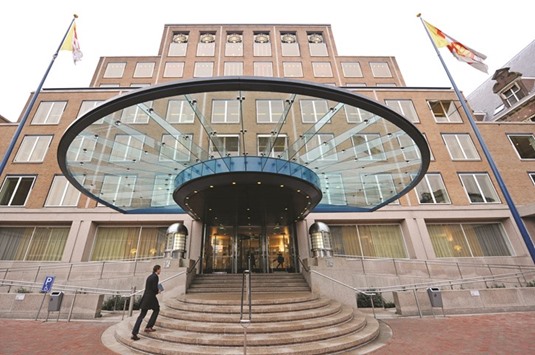Royal Dutch Shell will build seven fuelling stations for hydrogen cars in California through a partnership with Toyota Motor Corp, laying down their latest bet on the demise of the internal-combustion engine.
The stations will nudge the state closer to its goal of having 100 retail sites by 2024 where hydrogen fuel-cell vehicles can fill up.
The California Energy Commission is considering $16.4mn in grants toward the stations, with Shell and Toyota contributing $11.4mn.
The Shell-Toyota partnership “shows there’s a lot of interest and that the hydrogen market is poised to move forward rapidly,” said Janea Scott, a member of the California commission.
Toyota plans to rely on hydrogen to all but rid its lineup of traditional-engine models by 2050. The lack of refuelling infrastructure is a major hurdle to zero-emission cars catching on with consumers – California has just 25 stations right now.
Shell also is crafting a strategy to wean itself off oil. Demand could peak in as few as five years, Chief Financial Officer Simon Henry said in November.
The company operates six hydrogen stations – four in Germany and two in the Los Angeles area – and will open a seventh near London’s Heathrow Airport later this month.
“Shell wants to be in the forefront of this technology,” said Oliver Bishop, general manager for hydrogen. The complexities of producing, storing and delivering the fuel necessitates “the support of governments and of car companies like Toyota to make it work.’’
California has the toughest clean-air rules in the country and mandates for zero-emission vehicles, making it the natural place for Shell and Toyota to team up in the US While the Trump administration has indicated it may weaken environmental rules, California is aligned with countries in Europe and Asia.
Shell belongs to a German government-backed consortium targeting 400 stations by 2023. Tokyo plans to spend ¥45.2bn ($400mn) on fuel-cell vehicle subsidies and hydrogen stations by the time of the 2020 Olympic Games.
For Toyota, there’s no question fossil fuel-burning cars will be shunned or even outlawed in a few decades, and that the alternative they’ve worked on for 25 years will be ready to take over.
“When no more combustion of fuel is allowed, hydrogen will become one of the major sources of fuel, of that we’re confident,” said Kiyotaka Ise, Toyota’s president of advanced research and development and engineering.
The automaker’s long bet is that people will prefer cars like its Mirai – “the future” in Japanese – over plug-in electric models. The hydrogen-powered Mirai has a superior driving range and can be tanked up in three minutes – no hours-long charging involved. Only harmless H20 dribbles out of its rear end.
Four companies should be selling fuel cell vehicles this year in California: Toyota, Honda Motor Co, Hyundai Motor Co and Daimler. While Toyota has rendered hybrids commonplace, the industry is facing pressure for more zero-emission products from governments that see carbon pollution as a threat. Fully electric cars from Tesla and others are sparking interest.
Hydrogen fuel cell vehicles are still in their infancy in terms of commercial production, two years after Toyota’s Mirai hit the market. But the potential payoff of Toyota’s bet is huge, said Larry Burns, General Motors Co’s retired chief of research and development.

The headquarters of Royal Dutch Shell is seen in the Netherlands. Shell will build seven fuelling stations for hydrogen cars in California through a partnership with Toyota Motor, laying down their latest bet on the demise of the internal-combustion engine.
